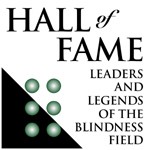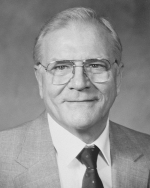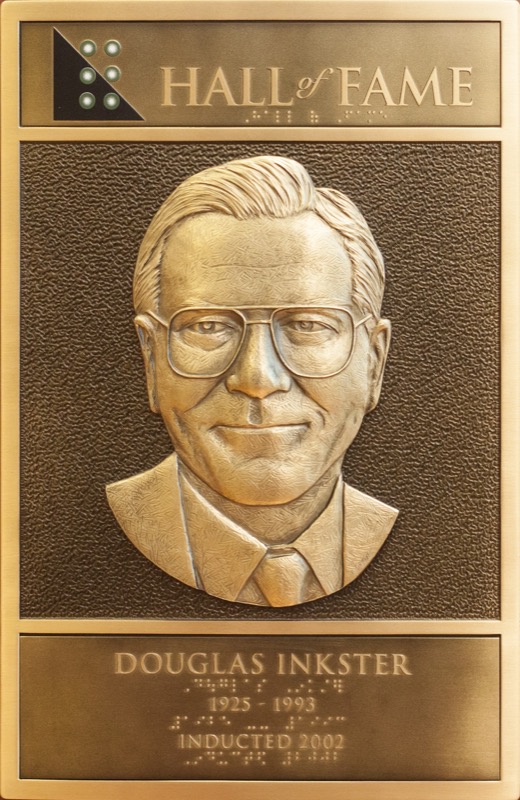Douglas Inkster
Inducted 2002
Doug Inkster (1925-1993) was born in Michigan. He received a bachelor’s degree from the University of Miami, Coral Gables, FL and a masters in counseling, testing and guidance and a doctorate from Michigan State University, East Lansing, MI in rehabilitation administration. He was wounded in World War II. Doug was married and they had two daughters and a son, all of whom were married before his death in 1993.
Doug Inkster has served with a number of agencies throughout his illustrious career. Early in his career, he served from 1950 to 1960 as the Vocational Rehabilitation Coordinator for the Michigan Rehabilitation Services, Lansing. Then in 1960 he assumed the position of Assistant Regional Representative for the US Department of Health Education and Welfare, Rehabilitation Services Administration, Region V. He was Superintendent of the Illinois Visually Handicapped Institute from 1963 to 1967. For three years he served as Assistant Superintendent of the Chicago State Hospital. Then he broadened his base of experience with shorter terms of employment with a variety of agencies, serving as Director of Vocational Independence Program for the Foundation for the Junior Blind in Los Angeles, as Assistant Executive Director for the National Accreditation Council, as Assistant Director of the Home for Aged Blind in Yonkers, as Executive Director of Vision Enrichment Services, Grand Rapids, and also serving as consultant for REHAB CONCEPTS, Jackson, Michigan.
Doug Inkster will be remembered most for his dynamic leadership and innovative approaches while serving as the Executive Director at the Center for Independent Living in New York from 1972 until his retirement in 1985. He became a national pioneer in the development of adjustment training programs for the older blind and visually impaired population when few other programs of this type existed. During a time in our country when there was a paucity of materials, he developed a set of training manuals for the instruction of independent living skills. Additionally, he strengthened the training and enhanced the acceptability of rehabilitation teacher assistants as a part of the service delivery model.
Many organizations and state services sought his expertise particularly in the areas of rehabilitation administration, program design and evaluation, grant applications, and accreditation. Some of the agencies with whom he consulted included the American Foundation for the Blind, Commission on Accreditation of Rehabilitation Facilities, National Accreditation Council for Agencies Serving the Blind, and state services in New Jersey, South Carolina, Wisconsin, New York, and Puerto Rico. He played a lead role in crafting the first NAC accreditation criteria.


